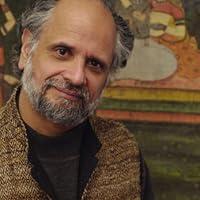
Homi K. Bhabha
关于作者
Homi K. Bhabha was an influential Indian physicist, often referred to as the father of Indian nuclear science. He played a pivotal role in establishing the nuclear program in India and was instrumental in the development of the country's first nuclear reactor, Apsara, which was commissioned in 1956. Bhabha's work laid the foundation for a comprehensive nuclear policy in India, and he was a prominent figure in advocating for the peaceful use of nuclear energy. His vision extended beyond mere scientific endeavors; he aimed to integrate science with societal progress, making significant contributions to both fields.
Bhabha was also a brilliant academic, earning his education at the University of Cambridge. His contributions to the field of particle physics, particularly in cosmic rays, were groundbreaking and earned him international recognition. Throughout his life, he emphasized the importance of scientific research and education in fostering national development. Tragically, his life was cut short in an airplane crash, but his legacy continues to inspire future generations of scientists in India and around the world.